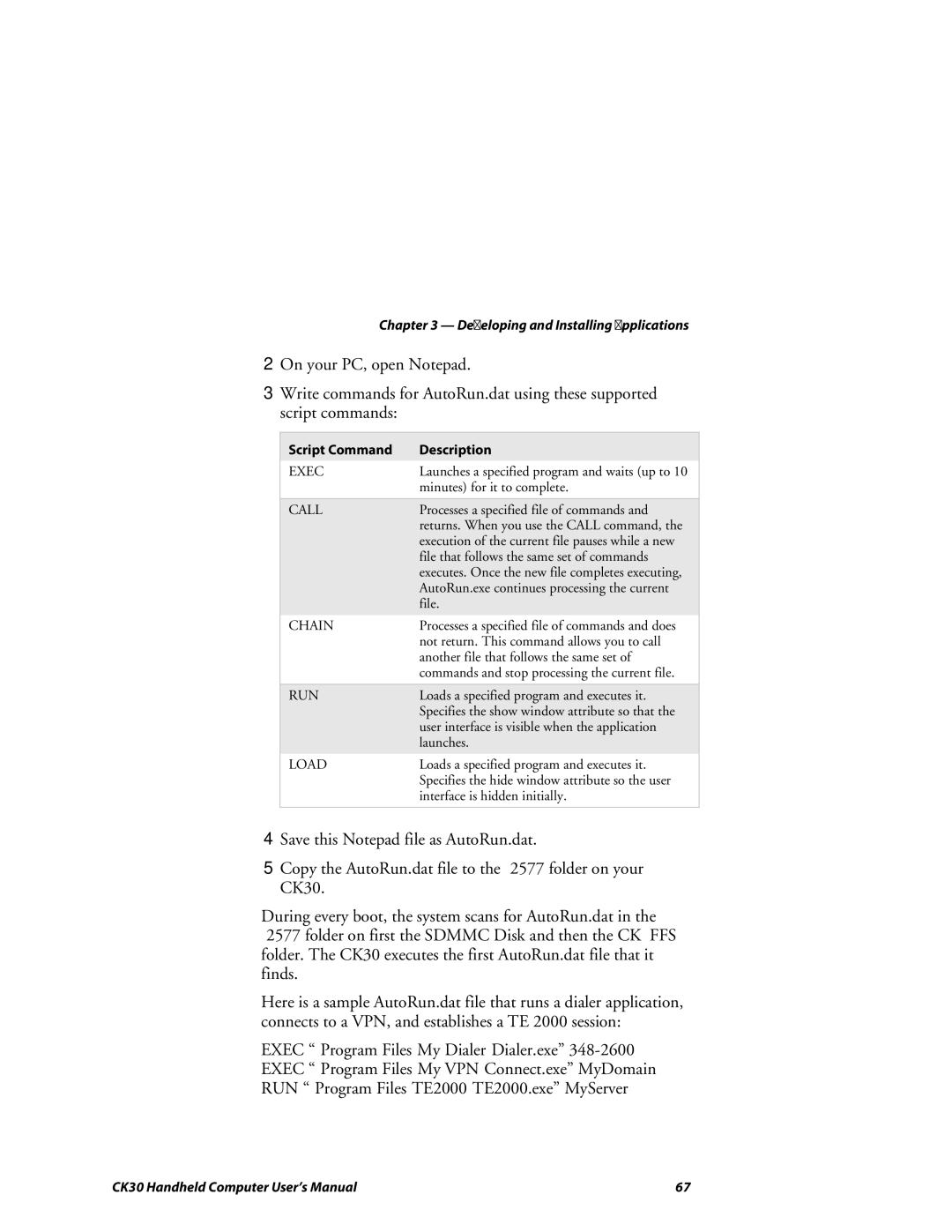Chapter 3 — Developing and Installing Applications
2On your PC, open Notepad.
3Write commands for AutoRun.dat using these supported script commands:
Script Command | Description |
EXEC | Launches a specified program and waits (up to 10 |
| minutes) for it to complete. |
|
|
CALL | Processes a specified file of commands and |
| returns. When you use the CALL command, the |
| execution of the current file pauses while a new |
| file that follows the same set of commands |
| executes. Once the new file completes executing, |
| AutoRun.exe continues processing the current |
| file. |
CHAIN | Processes a specified file of commands and does |
| not return. This command allows you to call |
| another file that follows the same set of |
| commands and stop processing the current file. |
|
|
RUN | Loads a specified program and executes it. |
| Specifies the show window attribute so that the |
| user interface is visible when the application |
| launches. |
LOAD | Loads a specified program and executes it. |
| Specifies the hide window attribute so the user |
| interface is hidden initially. |
|
|
4Save this Notepad file as AutoRun.dat.
5Copy the AutoRun.dat file to the \2577 folder on your CK30.
During every boot, the system scans for AutoRun.dat in the \2577 folder on first the SDMMC Disk and then the CK_FFS folder. The CK30 executes the first AutoRun.dat file that it finds.
Here is a sample AutoRun.dat file that runs a dialer application, connects to a VPN, and establishes a TE 2000 session:
EXEC “\Program Files\My Dialer\Dialer.exe”
CK30 Handheld Computer User’s Manual | 67 |
